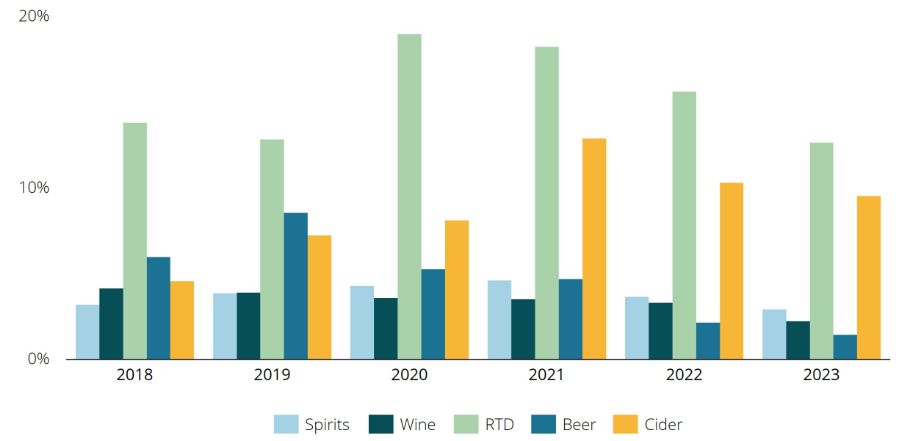Does Innovation Truly Add Value? Reflections on the IWSR Report
The IWSR released an article in 2024 exploring a crucial question: does innovation add value in the beverage industry? You can read the article here, and I wanted to share my take on it.
To begin with, I believe innovation does add value, but it’s essential to first define what we mean by innovation. True innovation, as Peter Thiel puts it, is more than incremental change; it’s about making bold leaps, moving from “zero to one.” This aligns with my perspective—innovation isn’t merely a small enhancement; it’s about creating something fundamentally new.
The IWSR article highlights Scotch as a leader in innovation over the past decade, which likely points to advancements in distillation, fermentation, or the integration of new technology. While the report doesn’t provide a strict definition of “innovation,” it excludes flavor extensions, stating that “vodka brands have been active in releasing new flavor lines, but these do not always grow the wider category.” This suggests that simply adding flavors doesn’t qualify as true innovation if it doesn’t expand the market or bring in new consumers.
In my view, the most significant recent innovation in the industry is the rise of the no-alcohol category. Another IWSR article outlines how this category is set for continued growth, driven by moderation trends, a robust no-alcohol beer market, and dynamic growth in zero-alcohol spirits, ready-to-drink (RTD) options, and alcohol alternatives. The no-alcohol category, almost non-existent just a few years ago, has created its own value and customer base—a true example of market innovation.
While I agree with much of the article's insights, I did notice a couple of issues with the column chart illustrating the 'Incremental Retail Sales Value of Innovations from 2018-23 by Categories.' For example, the article incorrectly suggests that the RTD category peaked in 2021, although the bar shows 2020. To improve clarity and comparison, using small multiples would allow for a more effective visual comparison between the categories (see example below).
Returning to the question of whether innovation adds value, the IWSR article effectively outlines three overarching use cases for innovation strategies in the beverage industry. These strategies provide a solid framework for understanding how innovation, when applied meaningfully, can drive growth and value in the market.
What’s your take on this? Do you think innovation truly adds value, and how do you define it? Let’s discuss!
